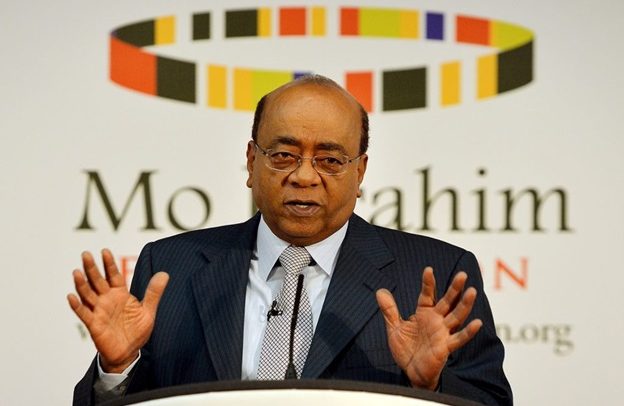Mo Ibrahim
Good quality data is essential to an effective governance system in Africa, a new report by the Mo Ibrahim Foundation (MIF) has highlighted.
The MIF Ibrahim Index of African Governance (IIAG) Series 2023 Report indicated that data is at the heart of Africa’s governance and development agendas stressing its role in driving progress, assessing government performance, setting policy priorities, and ensuring trust in governments.
Titled, “The Power of Data for Governance: Closing Data Gaps To Accelerate Africa’s Transformation,” the report revealed a strong positive correlation between access to high-quality statistics and effective governance across African countries from 2012 to 2021.
However, it said the continent remains the most impacted by data gaps globally, with the region possessing the lowest availability of civil registration and vital statistics.
“When it comes to the basic building blocks of statistics that are key to defining public policies, such as population censuses and birth and death registration, many African countries are missing crucial data.
Even in areas where strides have been made, critical governance data gaps persist on issues including health structures, the informal economy, the environment, violence against women, child labour, and illicit financial flows,” it said.
The report also stated that underfunding of data remains a serious challenge globally, with statistics receiving just 0.34% of total Official Development Assistance (ODA) adding that, in Africa, ODA received for data and statistics has nearly halved between 2018 and 2021.
In addition to investing in data, the report outlined critical strategies to enhance data impact and accelerate development progress on the continent.
These include the importance of ensuring the independence of National Statistical Offices, harnessing alternative data sources like citizen-generated data and private company data, and leveraging technologies such as Artificial Intelligence (AI) and machine learning.
Founder and Chair of the Mo Ibrahim Foundation, Mo Ibrahim, emphasised the importance of data for Africa in achieving key development and policy agendas.
“Without data, we are driving blind – policies are misdirected and progress on the road to development is stunted,” he said.
He called for an urgent action to close the data gap in Africa if the continent genuinely wants to leave no one behind.
“Data is key to achieving both the African Union’s Agenda 2063 and the UN’ Sustainable Development Goals. I have long been thinking that what UN Agenda 2030 should have begun with is an SDG 0 – Sound Data for Governance,” he stated.
By Jamila Akweley Okertchiri


